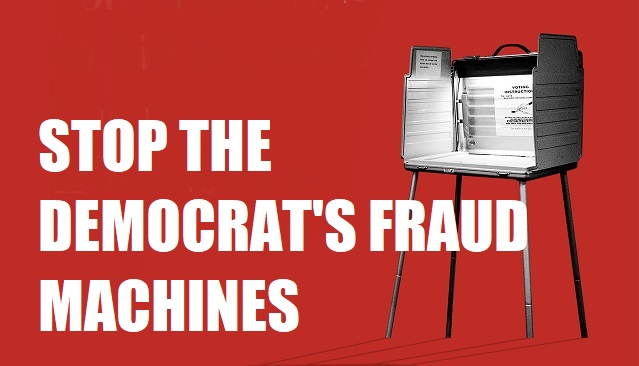Courts Side With Red States on Election Law Changes Post-2020

Democrat election fraud is systemic. Dismantling their fraud machine is a Sisyphean task.
Courts mostly siding with red states on election law changes post-2020
By Alex Swoyer and Stephen Dinan, – The Washington Times – Monday, October 3, 2022
The outrage was swift and severe when Georgia lawmakers announced legislation to prevent voters waiting in line from being provided food or drinks.
The state said it was making sure voters couldn’t be pressured, swayed or even bribed.
Critics said the law would keep voters waiting in the hot sun from being handed bottles of water. They warned that Black voters would refuse to show up and defended “line warming” activities as a critical First Amendment issue.
Chess in the spotlight for all the wrong reasons as cheating controversy smoldersSo far, Georgia is winning the legal fight. A federal judge allowed the ban on contact with voters in line to remain in effect this year.
Across the Sun Belt, attempts to reset voting practices after the pandemic-infused 2020 elections have met with howls of protest from Democrats and minority voting advocates. Federal courts have generally found the states to be on solid footing.
“Things are not going well for the challengers,” said J. Christian Adams, who worked on voting rights at the Justice Department and is now president of the Public Interest Legal Foundation.
Most of the rulings are preliminary. Major decisions will likely establish the legal playing field for voting changes before 2024.
For now, election laws survive. Texas bars drive-through voting, limits ballot drop boxes and imposes an ID requirement for voting by mail. Florida has imposed new rules on drop boxes and mail-in balloting.
A federal judge halted Florida’s law after determining that it was intended to cut into Black voting, but an appeals court put that ruling on hold. The law is intact for November.
The Justice Department has challenged new laws in Texas and Georgia, and both have survived scrutiny so far.
Caren Short, director of legal and research for the League of Women Voters of the United States, said the challenges will continue.
“Some advocates were able to get relief ahead of the 2022 election, but in many cases, appellate courts paused the relief pending appeal, so these anti-voter laws will be in effect in many places for the November election,” Ms. Short said.
One challenge succeeded in Arizona. Lawmakers enacted a measure that would have made it a criminal offense to register a voter already registered in another state. A judge last month halted that measure, saying it could make felons out of election volunteers.
The moves in Georgia and Arizona drew attention because both states voted for Joseph R. Biden in the 2020 presidential election, breaking decades-long Republican winning streaks.
Both states were able to adopt tighter election laws because their legislatures and governors’ offices were under Republican control.
Democratic-dominated states such as Connecticut, New York and Oregon have loosened election rules this year.
It’s all part of the jockeying for advantage. Democrats believe a more open voting process is better for their political fortunes, and Republican leaders believe a more constrained voting pool gives them an advantage. Political scientists question both beliefs.
Mr. Adams said Republican-led states have made headway on one issue that hasn’t drawn as much attention as drop boxes and voting lines but may be more crucial to election outcomes.
That’s the so-called Zuckbucks, or more than $300 million that Facebook founder Mark Zuckerberg and his wife made available to local election officials through their Center for Tech and Civic Life. The funds were supposed to help officials ensure high voter turnout despite the pandemic.
Mr. Adams said the money was spent disproportionately on methods that generally work on Democratic-leaning voters, such as get-out-the-vote advertising on urban radio stations.
Rep. Claudia Tenney, New York Republican, calculated that Democratic counties in Georgia got more than $42.1 million in Zuckbucks while Republican counties got just $3.5 million. In Florida, the breakdown was skewed toward Democratic counties, $14.8 million to $1.2 million. Pennsylvania’s Democratic-to-Republican ratio was $20.8 million to $1.7 million.
Armed with such data, Republican-led states moved to crack down on that sort of money.
The Capital Research Center, which has been monitoring Mr. Zuckerberg’s spending, says 24 states have moved to restrict or ban these types of private money donations.
AUTHOR
Pamela Geller
RELATED ARTICLES:
CEO of U.S. Election Software Firm Konnech Arrested for Storing Data on Servers in China
EDITORS NOTE: This Geller Report is republished with permission. ©All rights reserved.


Leave a Reply
Want to join the discussion?Feel free to contribute!